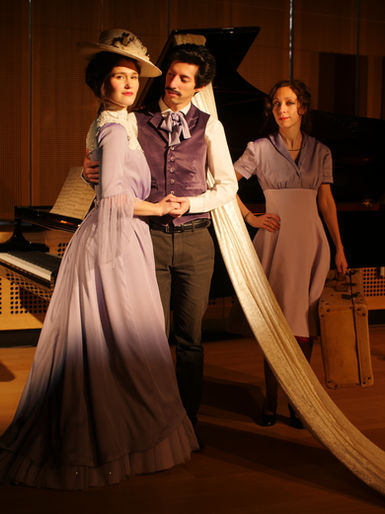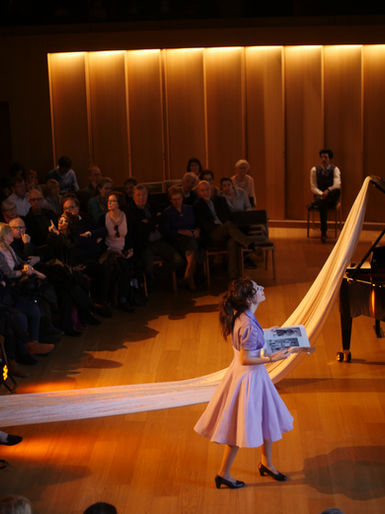
Enrique Granados
Finding the Artist again
Extracts of "Granados : finding the Artist again" 2019
FR / ENG
« La torpille maudite n’a pas seulement anéanti l’artiste merveilleux mais toutes les oeuvres qu’il nous aurait encore données, car il avait une longue carrière devant lui », ainsi Camille Saint-Saëns déplorait-il en 1916 la disparition d’Enrique Granados, noyé à 49 ans après qu’un sous-marin allemand ait torpillé le ferry au bord duquel il voyageait.
Son premier opéra, Goyescas, venait d’être créé à New-York et avait rencontré un immense succès, et sa disparition provoquait une indignation et une consternation internationales.
C’est là que tout commence : une descendante du compositeur découvrant des extraits de journaux et de lettres de l’époque, se plonge peu à peu dans sa vie et dans son univers.
Le passé ressurgit, se mêle au présent, les images de Goya prennent vie, le rêve et la réalité ne font plus qu’un. Dans ce spectacle musical, épistolaire et poétique, le pianiste, la chanteuse et la comédienne parcourent un florilège de mélodies, d’extraits des Valses poétiques, des Danses espagnoles, des Goyescas et des Scènes romantiques, en résonance avec des poèmes de Machado, Bécquer, Lorca, et des lettres de Granados et de ses contemporains.
En un peu plus d’une heure, vous passerez de la fraîcheur riante à la mélancolie, au rêve, et de l’humour coquin à la douleur profonde et à la passion romantique. En espagnol (surtitré) et en français.
Pablo Matías Becerra (pianist)
Valeria Becerra (comedian)
Julie Gebhart (soprano)
“The cursed torpedo not only annihilated the marvellous artist, but also all of the works that he still could have given us; he had a long career in front of him.” This is how Camille Saint- Saëns lamented the disappearance of Enrique Granados in 1916, drowned at the age of 49 after a German submarine torpedoed the ferry on which he was travelling.
Granados’ first opera, Goyescas, had just premiered in New York, where it was received with great acclaim, and thus his disappearance provoked international indignation and distress.
That is where everything begins: a descendant of the composer, discovering newspaper entries and letters from that period, becomes increasingly immersed in his life and universe.
The past resurges and mingles with the present, with the images of Goya coming alive, and dreams and reality merging into one. In this musical, epistolary and poetic performance, the pianist, the singer and the actress cover an anthology of melodies, excerpts from poetic waltzes, Spanish dances, Goyescas and romantic scenes, resonating with the poems of Machado, Bécquer, Lorca, and the letters of Granados and his contemporaries.
You will travel from the lightness of laughter to melancholy, to dreams, and from mischievous humour to profound pain and romantic passion. The performance is in Spanish (subtitled) and French.















